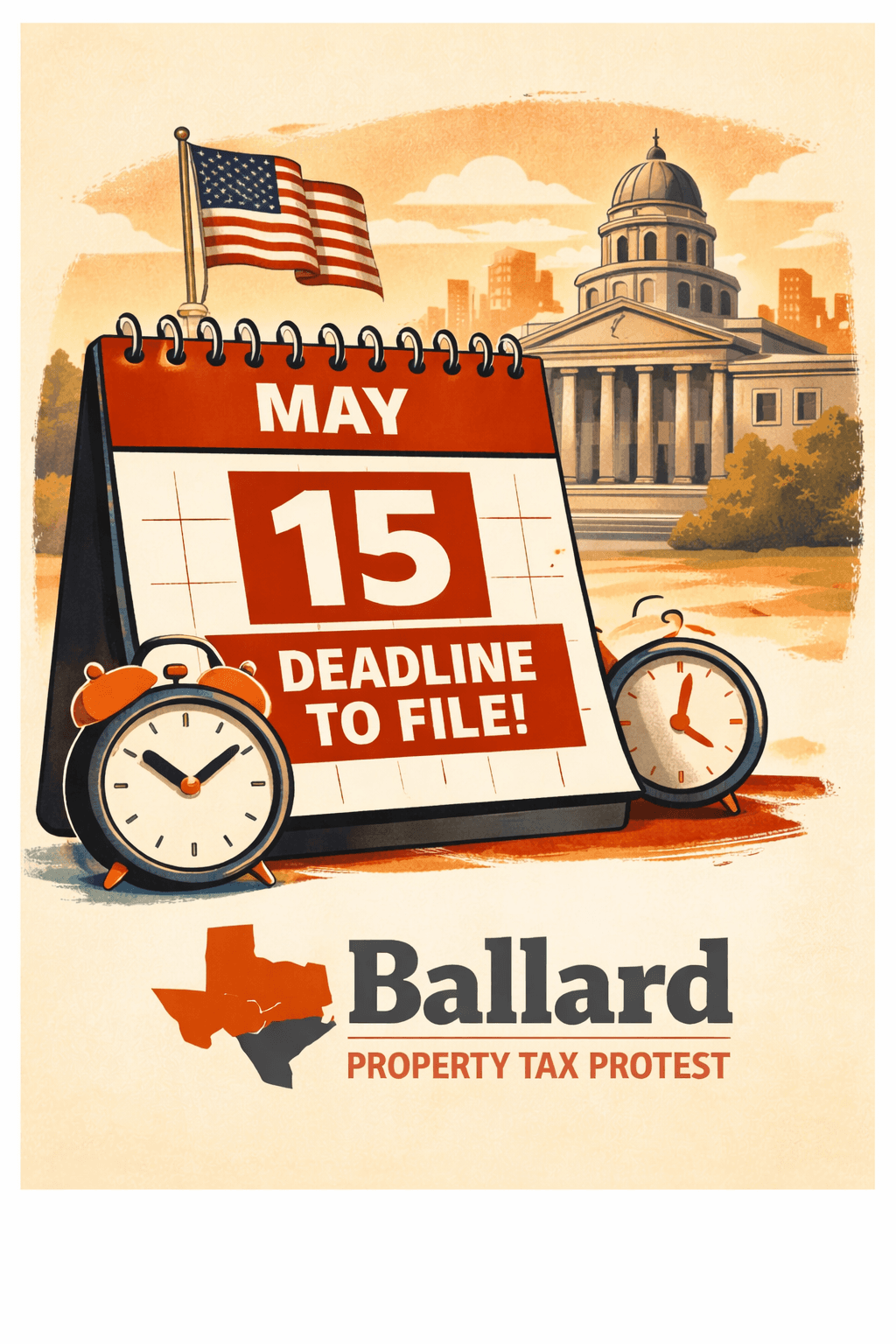Understanding Property Tax Deadlines in Texas: A Guide for Homeowners
The deadline to file a property tax protest in Texas is May 15 or 30 days after your appraisal notice was mailed, whichever is later. You must file a Notice of Protest with your county's Appraisal Review Board (ARB) before this deadline to challenge your property's assessed value.
Navigating the realm of property taxes in Texas can be daunting, especially for new homeowners or those unfamiliar with the state's specific deadlines and regulations. As a homeowner in Texas, it's crucial to stay informed about the key dates for property tax payments to avoid penalties, interest, and other potential complications. Here's a comprehensive summary of what you need to know about property tax deadlines in Texas.
Key Dates for the Texas Property Tax Calendar
Protest Deadlines
- May 15 (or 30 days after your notice): This is the standard deadline for filing a property tax protest. If your Notice of Appraised Value is mailed before April 15, you must file by May 15. If it's mailed after April 15, you have 30 days from the mailing date. For example, a notice dated May 1 gives you until May 31.
- Check your notice carefully: The exact deadline is printed on your Notice of Appraised Value. Don't rely on general dates - verify yours each year.
If you miss the protest deadline, you may still have limited options. See our guide on what happens if you miss the property tax protest deadline.
Payment Deadlines
- October: Property tax bills are typically mailed out by county tax assessor-collectors.
- January 31: Deadline to pay your property taxes before they become delinquent.
- February 1: Penalties and interest begin accruing on unpaid property taxes.
For the full payment calendar, including how to pay and early payment discounts, see: When Are Property Taxes Due in Texas?.
Exemption Deadlines
- April 30: Deadline to file for homestead exemptions and other property tax exemptions with your county appraisal district. Late applications may still be accepted up to one year after the delinquency date.
Discounts for Early Payment
Some Texas counties offer discounts for paying property taxes early:
- October: Up to 3% discount
- November: Up to 2% discount
- December: Up to 1% discount
Not all counties participate, so check with your county tax assessor-collector's office for availability.
Options for Homeowners
Payment Plans
For those unable to pay the full amount by the deadline, payment plans are an option. These plans can extend up to 36 months but typically include additional interest. Contact your county's tax office to understand the specific terms and availability.
Tax Deferrals
Homeowners aged 65 and older or those with disabilities may be eligible for property tax deferrals. This option allows for the postponement of property tax payments until the home is sold or transferred. While interest continues to accrue during the deferral period, this can offer significant relief for those on fixed incomes.
Penalty Waivers for Military Personnel
Active-duty military personnel may qualify for waivers of penalties and interest on delinquent taxes. Eligibility criteria include being on active duty and being transferred out of state. Taxes become due 60 days after discharge, return to the state, or return to non-active duty status.
Tax Deductions
A portion of your property tax payments may be deductible on your federal income tax return. Consult with a tax professional to understand the allowable deductions, especially considering the $10,000 cap on state and local taxes (SALT), including property taxes.
Refunds Following Successful Tax Protests
If you successfully protest your property taxes and achieve a reduction in your tax liability after payment, you may be eligible for a refund. This refund would include excess taxes paid, along with interest from the delinquency date to the refund payment date.
Don't Miss Your Deadline
Staying informed and proactive about your property taxes in Texas can save you money and prevent legal complications. If you suspect you're overpaying on property taxes or need assistance with a tax protest, Ballard Property Tax Protest handles the entire process on your behalf - filing, evidence gathering, and hearings. You don't pay unless we lower your taxes.
Sign up today to make sure your protest is filed before the deadline.
